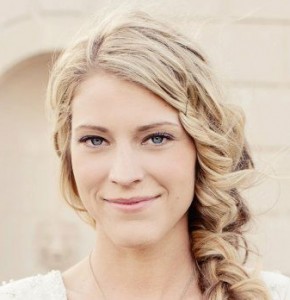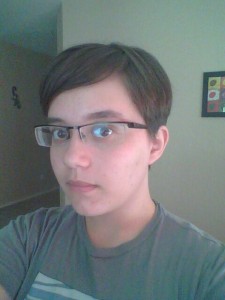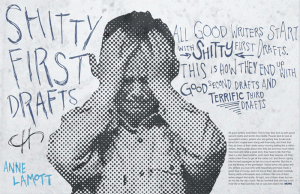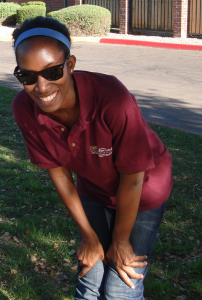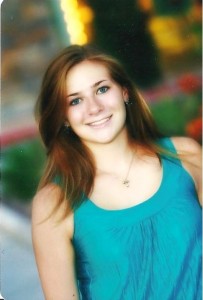I haven’t been editing fiction for a long time, but even in the time I’ve been a fiction editor here at Superstition Review, some things have come to my attention about the role an author’s decisions play in an editor’s decision process. It’s so simple to say that good writing gets published and that bad writing gets rejected. However, with an acceptance rate of about 4% for fiction (probably higher than the standard acceptance rate) the fact is that a lot of good writing goes back to its author with a rejection notice. While there are a lot of factors that go into the editorial process and some of them are beyond the author’s control, there are some relatively simple things an author can do to increase the odds of getting published. As with everything, these are rules that can sometimes be broken, there only has to be a deliberate point in doing so.

Self-Editing
This is a quick one. If there are easy-to-catch editing mistakes (especially doubled-up
words and misspellings) it becomes incredibly easy to send that rejection notice. Make sure that it is clear to your readers just how important your own work is to you.
Nail that Opener
Throughout my time as a writer, I have often been told the importance of the opening line, and of that line’s innate ability to make or break a story. While the first line is not always the most important, there is a great degree of influence in those first couple of paragraphs. Let’s say the first page is not only pivotal in setting up the mood and direction of a short story but it is also the space where the author needs to prove that they are good at what they do. The opening is where the most polished writing needs to be. It may sound harsh, but if you have more than one or two problems in the opening then I am automatically going to assume that those problems prevail throughout the story.
Perspective
 The point of view from which a narrative is told is as important to a story as the writing itself. Most writers seem to understand that the role of first person is to provide the audience with a specific character’s insight and perspective on the world. During this particular submissions period, we received a lot of stories written in second person. We accepted one, but would have to think twice about accepting several. What really seems to be the problem is that writers are forgetting that the second person perspective requires two subjects. The first is the narrator and the second is the person they are addressing. It is when this second character is forgotten or poorly developed that this point of view falls apart.
The point of view from which a narrative is told is as important to a story as the writing itself. Most writers seem to understand that the role of first person is to provide the audience with a specific character’s insight and perspective on the world. During this particular submissions period, we received a lot of stories written in second person. We accepted one, but would have to think twice about accepting several. What really seems to be the problem is that writers are forgetting that the second person perspective requires two subjects. The first is the narrator and the second is the person they are addressing. It is when this second character is forgotten or poorly developed that this point of view falls apart.
Dialogue
Dialogue is much more like an iceberg than anything else; there is more going on beneath the surface than above. Also, much like an iceberg, not paying the appropriate amount of attention to it is going to sink you just as surely. I have two suggestions here on ways to improve dialogue. One sounds fairly straightforward, the other much less so. The first is sitting down and reading a couple of plays. Playwrights like McDonagh, Kushner, and Pinter are great examples of playwrights who know the importance of dialogue as well as the importance of what is left unsaid.
My other suggestion is to pick up and read some comics. Now bear with me a second, because I do have a reason for suggesting this. 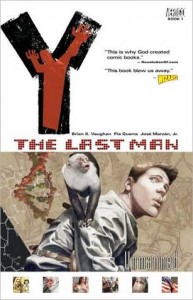 The thing about comics is that their dialogue makes up a majority of the written words on any given page. As such, the dialogue has nothing to hide behind. A bad line is separated from everything else and framed by a black line for all to see. There is no escaping it. Creative writers should do the same thing with their dialogue. Imagine it alone on a page and see if it stands up to that sort of individualized scrutiny.
The thing about comics is that their dialogue makes up a majority of the written words on any given page. As such, the dialogue has nothing to hide behind. A bad line is separated from everything else and framed by a black line for all to see. There is no escaping it. Creative writers should do the same thing with their dialogue. Imagine it alone on a page and see if it stands up to that sort of individualized scrutiny.
One more note: dialogue tags (he said, she said) are the absolute worst, even more so when only two characters are present in a scene. Having characters constantly use pronouns in their dialogue is not any better.
Clichés
It’s one of the first lessons we learn as writers: avoid clichés. Luckily, most writers seem well aware of this fact. However, there are still what I call microcosms of clichés. This is when a specific subject starts to make up an alarmingly large portion of the submissions received by a magazine. This is a difficult thing to avoid and not entirely the fault of the author, but it does have a lot to do with whether or not a piece will be published. As an example, during this submission period Superstition Review received a lot of fiction pieces featuring cancer. Think of this as increasing your competition. Now, not only do you have to be one of the best writers submitting but you also have to have one of the best pieces featuring cancer.
Again, this is not really something the author has complete control over but there are some things one can do to try and avoid it. My first suggestion would be to watch being overly topical in the sense of broad problems that affect everyone. If it’s a subject on every news program and part of the collective mind then it is probably safe to say that it is going to find its way into a lot of creative writing. One way to overcome this is to talk about these subjects in a different way or to come at them from a different angle. Cancer is not the interesting subject, the way in which people deal with it is. In this case, the story need not be about cancer but can be any disease that compromises its host in the same way. Another suggestion is to watch the literary magazines that you are submitting to, if they are already carrying pieces dealing with a specific topic then try shopping a piece with the same topic someplace else.
Balance
It is hard to sit down and read something that is all action with no thought given to imagery or voice. Imagery, and the way an author describes the world in which their story exists, is a large part of what makes creative writing so unique and a large part of why people read it. Without it the writing is going to feel stale and lifeless.
There is the opposite of this as well. Though it is less common, the overuse of imagery/voice will kill a story just as quickly as having none at all. These stories are often jumbled and confusing, leaving the reader little frame of reference in which to find their way through a story.
Word choice is another part of this balance equation. It is very easy to miss the repetitious use of a couple of words, but nothing makes me question a writer’s ability quite so quickly. While it is sometimes necessary to repeat a few words, I cannot really think of a justification for doing it more than twice in a paragraph. Really watch out for those pet words.
Again, there is the other side of this as well and that is the thesaurus approach. This is when a writer clearly uses a thesaurus to generate unique words in their story. The words often come off as awkward and create a disjointed sentence. There is nothing wrong in using it occasionally when the right word is escaping you but, ironically, overuse is just going to drain a piece of its feeling of originality.
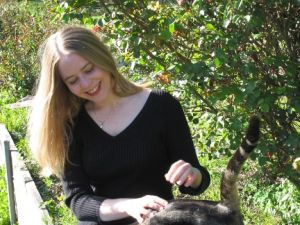
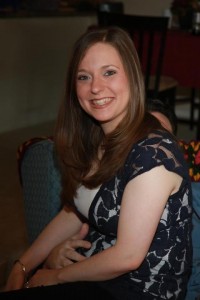 Once, she was asked to list five books she’d bring with her on a deserted island and without fail her answer remains: Harry Potter and the Goblet of Fire, The Scarlet Letter, a collection of Allen Ginsberg’s poetry, To Kill a Mockingbird, and Billy Collin’s The Trouble with Poetry. Her favorite reading reflects her own writing style – a combination of youthful fancy and shenanigans mixed with sarcasm and adult confession.
Once, she was asked to list five books she’d bring with her on a deserted island and without fail her answer remains: Harry Potter and the Goblet of Fire, The Scarlet Letter, a collection of Allen Ginsberg’s poetry, To Kill a Mockingbird, and Billy Collin’s The Trouble with Poetry. Her favorite reading reflects her own writing style – a combination of youthful fancy and shenanigans mixed with sarcasm and adult confession. Arjun started working with Superstition Review over the past summer as a guest contributor with his blog series, “Dispatches From Delhi.” Despite being relatively new to the world of editing/publishing, Arjun finds his position intellectually stimulating and instrumental in giving him his first glimpse into the actual working side of writing. He finds his work to be a comprehensive learning experience in meshing creativity with professionalism, an invaluable skill of those who strive to make a living through their writing, a skill he is glad to have the chance to practice.
Arjun started working with Superstition Review over the past summer as a guest contributor with his blog series, “Dispatches From Delhi.” Despite being relatively new to the world of editing/publishing, Arjun finds his position intellectually stimulating and instrumental in giving him his first glimpse into the actual working side of writing. He finds his work to be a comprehensive learning experience in meshing creativity with professionalism, an invaluable skill of those who strive to make a living through their writing, a skill he is glad to have the chance to practice.